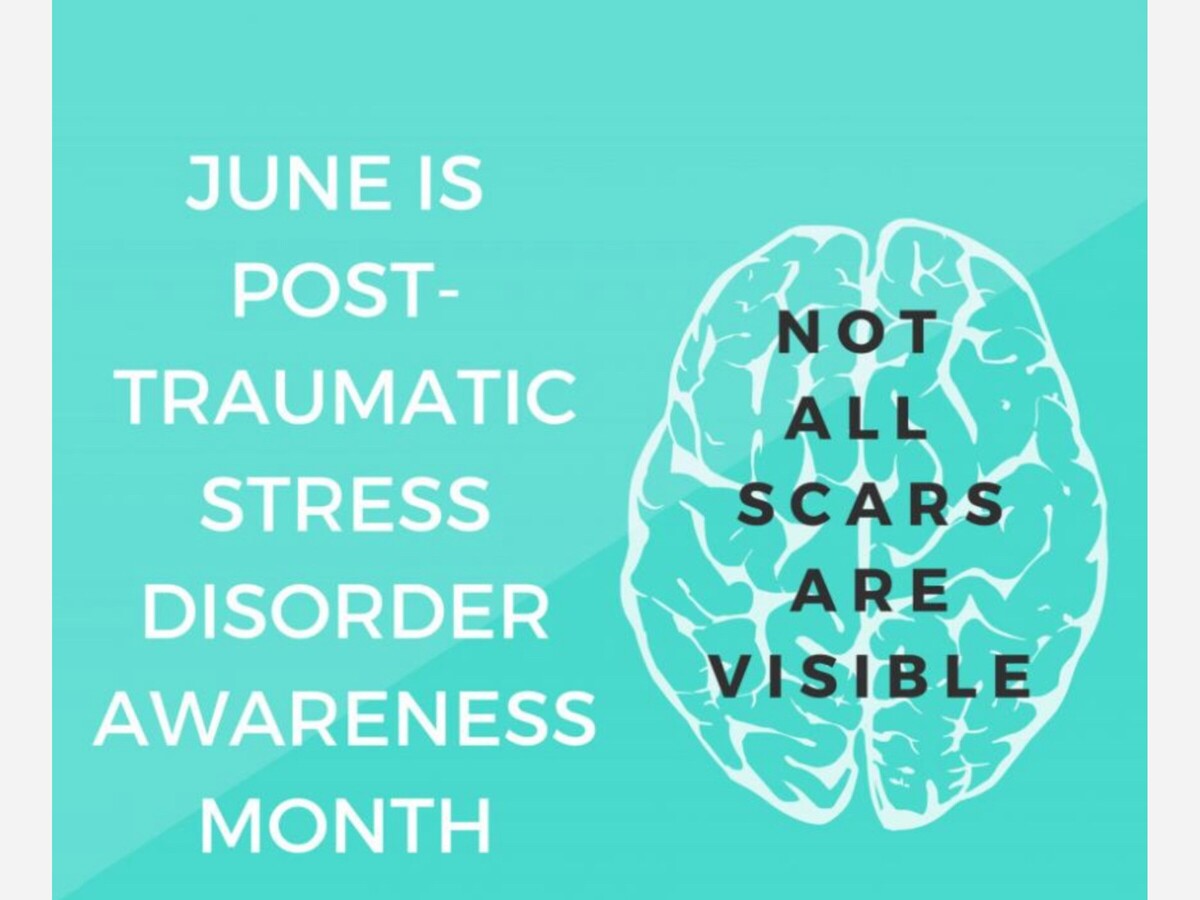Image


June is Post-Traumatic Stress Disorder (PTSD) Awareness Month, which aims to increase awareness and spread the word that effective treatments are available. PTSD is an anxiety disorder that can develop in people after they experience or witness a life-threatening event, such as combat, natural disasters, car accidents, or sexual assault. Symptoms can include nightmares, uncontrollable thoughts about the event, sleep problems, irritability, anger, intense reactions to reminders of the trauma, disturbances in relationships, and isolation. Symptoms can start soon after the traumatic event, but may not appear until months or years later, and they can come and go over many years. Some people may recover a few months after the event, but for others it may take years. Treatments for PTSD include trauma-focused psychotherapy and medications to manage symptoms.
Anyone can develop PTSD. This includes service members and civilians who have experienced or witnessed a traumatic event, such as a physical or sexual assault, abuse, disaster, terror attack, an accident, or other serious events. According to the National Institute for Mental Healthopens NIH.gov, not everyone with PTSD has direct exposure to the event—for example, learning that a friend or family member experienced trauma can also cause PTSD.
Though the NIH and the Department of Veterans Affairs National Center for PTSDopens VA.gov indicate that most people who experience a traumatic event will not develop PTSD, some factors may increase the likelihood of PTSD. For example, the VA indicates women are twice as likely to develop PTSD as men, in part due to the types of traumatic events that women are more likely to experience—such as sexual assault. Veterans are more likely to have PTSD than civilians. Veterans who deployed to a war zone are also more likely to have PTSD than those who did not deploy.
PTSD is also a concern among active duty service members. According to the Defense Centers for Public Health-Aberdeen’s 2022 Health of the Force reportview or download the PDF, PTSD was the fourth-leading reason for a temporary behavioral health profile, affecting 2,096 soldiers with an average of 51 days on profile.
According to the Diagnostic and Statistical Manual of Mental Disorders, Fifth Edition, to meet the criteria for PTSD, a person must have symptoms for longer than one month, and the symptoms must be severe enough to interfere with aspects of daily life, such as relationships or work. The current medical diagnosis for PTSD has the following four symptom clusters:
Emotional distress after exposure to traumatic reminders
Finding a support network or professional behavioral care immediately after a traumatic event can help you process your emotions which may reduce your chance of developing PTSD. However, there are no proven actions to prevent PTSD. If you do develop PTSD, the best way to minimize the impact on your life and work is to ensure you get rapid and effective treatment. Some people diagnosed with PTSD can recover within six months, while others have symptoms that last for one year or possibly much longer. Fortunately, there are effective treatments for PTSD.
Based on current PTSD research, the 2023 VA and Department of Defense evidence-based PTSD medical proceduresopens VA.gov, referred to as clinical practice guidelines, or CPGs, recommends treating PTSD using trauma-focused psychotherapies over medications. Trauma-focused psychotherapy uses cognitive, emotional, or behavioral techniques to help a service member process a traumatic event. There are three specific trauma-focused psychotherapies recommended by the DOD and VA to treat PTSD:
According to the Veterans Health Administration Office for Mental Healthview or download the PDF, these three recommended psychotherapies are equally effective; therefore, selecting a treatment often depends on aspects of the treatment, provider training and the specific needs of the individual. In addition, people with PTSD often have co-occurring conditions, such as depression, substance use, or other anxiety disorders—so treatments for these conditions may also be advised.
Locally there are a variety of services and providers for PTSD patients. One such provider is Lynn Kimball is a professional counselor and co-owns BLUE SKY Counseling. In order to better serve the local community they are expanding their services network and building a new facility to open soon.
 Counselor Lynn Kimball LPCC in front of soon to open new offices.
Counselor Lynn Kimball LPCC in front of soon to open new offices. Counselor Lynn Kimball LPCC in front of soon to open new offices
Counselor Lynn Kimball LPCC in front of soon to open new officesTo learn more about PTSD treatments and services offered by Blue Sky Counseling visit https://www.blueskycounseling.net/about-us